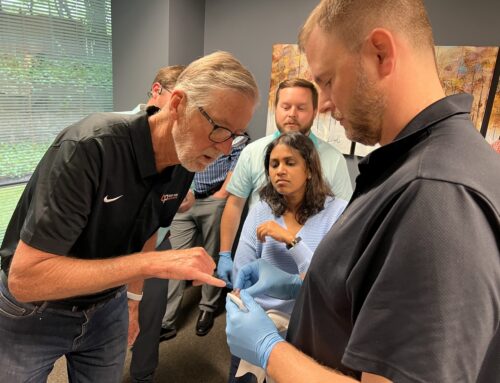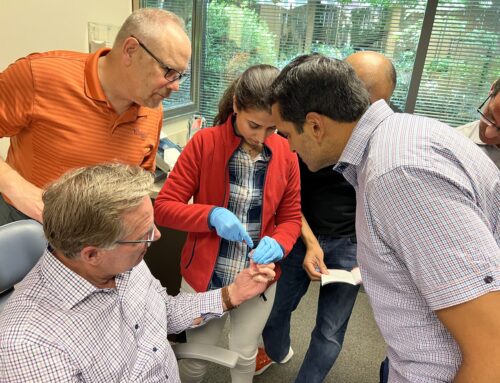When it comes to treating sleep apnea and other sleep breathing disorders, it is important to understand who each member of your team is. While we have mentioned this before, it is always a good idea to refresh your memory of just what each member does. Let’s meet he members of a sleep team, so you can better understand who is there to help in the diagnosis and treatment of your patients:
Board Certified Sleep Medicine Physician
A board certified sleep medicine physician has the necessary skills to diagnose and treat sleep disorders. If you suspect your patient might be suffering from a sleep disorder, the first person you should contact is your local sleep medicine physician. Each sleep medicine specialist has received special training that can prevent serious life-threatening diseases and improve your quality of life.
The Sleep Technologist
A sleep technologist will assist in the evaluation and follow-up care of patients with sleep disorders—they interact directly with the patients. They will assist the sleep medicine physician with diagnostic tests, including in-lab sleep studies, multiple sleep latency testing (MSLT) and the maintenance of wakefulness testing (MWT). A sleep technologist will also score sleep tests prior to the physician’s interpretation, while also assisting patients with their home sleep tests.
Advance Practice Nurse/Physician Assistant
Nurses and physicians assist the sleep medicine physician in providing care for your sleep patients. Their roles will vary by state, but both typically practice within the scope of practice as defined by a state licensing board.
Sleep Surgeon
Also known as an otolaryngologist, a sleep surgeon has a specific interest in treating snoring and obstructive sleep apnea. Sleep surgeons work closely with a board certified sleep physician to provide proper care for patients who cannot tolerate CPAP therapy. The sleep surgeon can discuss with your patient each surgery option available.
Behavioral Sleep Medicine Specialist
Mental health professionals that have training in behavioral sleep medicine can work with patients to address the behavioral, psychological and physiological factors that might be interfering with their sleep. A behavioral sleep medicine specialist will use cognitive-behavioral therapy to attempt to eliminate habits, behaviors and environmental disruptions that stand in the way of optimal rest.
As a dental sleep medicine specialist, you can often recognize a sleeping problem before it worsens. You can also provide effective treatment for your patients. Dr. Mayoor Patel is available to help teach and guide you in your role as a dental sleep medicine specialist and how you can successfully treat your patients.





